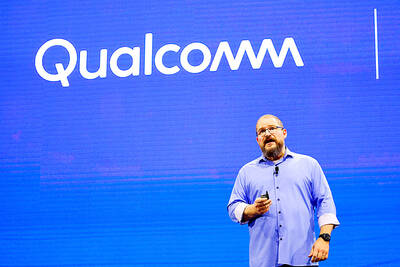Thai farmers are gearing up for a new fruit harvest with their eyes on a big new market -- the US, where they hope their tasty produce can tempt American palates.
Last July the US ended a decade-long ban and began allowing Thailand to sell fresh mangos, mangosteens, rambutans, lychees, longans and pineapples, provided the fruits are irradiated to kill the pests that nest in them.
"The US is considered a high potential market given its high purchasing power and huge population, which includes a large number of Asians" already familiar with Thailand's exotic fruits, said Boonmee Wongshotisatit, director of the Thai Fruit and Vegetable Producer Association.
"After more than 10 years of completely closing its door, now Thai fruits are allowed to enter the US market to compete with those from Mexico, Brazil and Australia," he said.
Boonmee's Asia Exotic Corp is among 18 Thai traders now allowed to export fruits to the US mainland.
The firm sent its first shipment of mangos and longans in November, but the real test will begin in May as harvests for tropical fruits get underway.
The six fruits now allowed for export to the US are among Thailand's biggest crops. The kingdom produced over 1 million tonnes just of mangos last year, according to the Department of Agricultural Extension.
Fruit from Thailand already sells in China, Japan, India, Taiwan and European countries such as Britain and Germany.
"The US has greater potential because of its larger population, which includes more Asians and also Mexicans" who seek out exotic fruits, director Chavalit Hunka from the department said.
"However, continuous campaigns are needed to raise public awareness and to expose the market to Thai fruits," Chavalit said.
The agriculture ministry predicts exports of fresh fruits to the US could reach 20,000 tonnes annually in a few years' time.
Mangosteens are expected to make a particular splash in the US, where it is becoming a popular health supplement despite the high cost and low supply.
With a flesh that tastes pleasantly sweet and sour, mangosteens also contain xanthone -- a type of antioxidant said to balance free radicals in the body that can cause cancer or heart disease.
For farmers, finding a new market helps shore up prices when fruits flood the local market during the local harvest season.
The price of lychees, for example, sometimes drops to 10 baht (US$0.30) a kilogram from as high as 150 baht.
"Oversupply happens every year. If we have new buyers -- either local or abroad -- we can sell more lychees at better prices," said grower Lamyai Chaiyakit, 47, from central Samut Songkhram Province.
But growers say that selling to the US is not a sure bet. Shipping is expensive and time-consuming, so the fruits are not fresh when they arrive.
"Sending fresh fruits to the US is costly, especially mangosteens, which have thick and heavy shells," said Suwat Phewsa-ard, a mangosteen grower from Trat Province.
"If Thai mangosteens are available in the United States but at higher prices than our competitors, who is going to buy our fruit?" he said.
And there is concern over possible side-effects from the irradiation required for the US shipments.
"Radiation may shorten the fruits' shelf-life and cause radiation burns that make the fruits less attractive," said Chusak Chuenprayoth, head of agricultural committee at the Thai Chamber of Commerce.

Intel Corp yesterday reinforced its determination to strengthen its partnerships with Taiwan’s ecosystem partners including original-electronic-manufacturing (OEM) companies such as Hon Hai Precision Industry Co (鴻海精密) and chipmaker United Microelectronics Corp (UMC, 聯電). “Tonight marks a new beginning. We renew our new partnership with Taiwan ecosystem,” Intel new chief executive officer Tan Lip-bu (陳立武) said at a dinner with representatives from the company’s local partners, celebrating the 40th anniversary of the US chip giant’s presence in Taiwan. Tan took the reins at Intel six weeks ago aiming to reform the chipmaker and revive its past glory. This is the first time Tan

Qualcomm Inc is strengthening its partnerships with Taiwan Semiconductor Manufacturing Co (TSMC, 台積電) and original design manufacturers (ODMs) in Taiwan as it expands its presence in the artificial intelligence (AI) computer market, CEO Cristiano Amon said in Taipei yesterday ahead of the annual Computex trade show. “Historically we’ve always been a very big customer of TSMC, and we continue to be,” Amon said during a media Q&A session. “For chip manufacturing, we’re among the largest fabless [semiconductor designers],” he said, noting that Qualcomm, a leading provider of mobile and AI-enabled chipsets, ships about 40 billion components every year, with TSMC being

‘FAILED EXPORT CONTROLS’: Jensen Huang said that Washington should maximize the speed of AI diffusion, because not doing so would give competitors an advantage Nvidia Corp cofounder and chief executive officer Jensen Huang (黃仁勳) yesterday criticized the US government’s restrictions on exports of artificial intelligence (AI) chips to China, saying that the policy was a failure and would only spur China to accelerate AI development. The export controls gave China the spirit, motivation and government support to accelerate AI development, Huang told reporters at the Computex trade show in Taipei. The competition in China is already intense, given its strong software capabilities, extensive technology ecosystems and work efficiency, he said. “All in all, the export controls were a failure. The facts would suggest it,” he said. “The US

NEW PRODUCTS: MediaTek has been diversifying its product lines to minimize operational risks as mobile chips remain the company’s biggest revenue source MediaTek Inc (聯發科), the world’s biggest supplier of smartphone chips, yesterday said the tape-out process for its first 2-nanometer chip would take place in September, paving the way for volume production of its most advanced chip, likely to be its next-generation flagship smartphone chip, around the year-end at the earliest. MediaTek has been leveraging advanced process technologies from its foundry partner, Taiwan Semiconductor Manufacturing Co (TSMC, 台積電), to build its flagship mobile phone chips, a segment it once relinquished and then recovered four years ago as it released its Dimensity series. In the semiconductor industry, a tape-out refers to the